Turkey Advises Migrants on Routes to France, Germany: Avoid Croatia
March 6, 2020 - Turkey has released a map of route options for migrants hoping to reach France and Germany, and Croatia has been bypassed. Greek media outlets recently reported Turkey's geographical map with "routes" running from Turkey into Western Europe.
They claim that it is further evidence that Ankara has officially participated in the developing crisis by encouraging migrants and refugees to enter the EU illegally. The map, along with instructions in Arabic, was published by the official Turkish state television TRT Arabic and posted on their Twitter page and Facebook page on February 28, 2020.
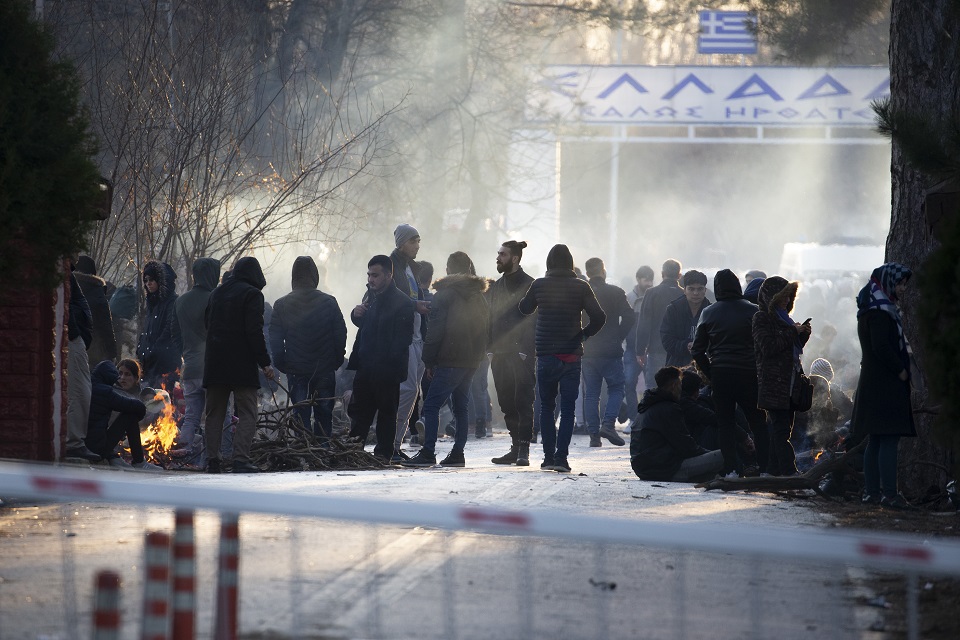
Turkey Migrant Map Shows Five Routes to France, Germany
According to the map, migrants and refugees are directed to five route options through Turkey to five "entry points" to Greece: four on its islands, and one via the land border, across the Evros river, where the Greek army was recently deployed, and where conflicts across the border line are now almost continuous.
Upon arrival in Greece, migrants and refugees would, according to the map, cross through Italy on their way to France, which is shown as a major destination.
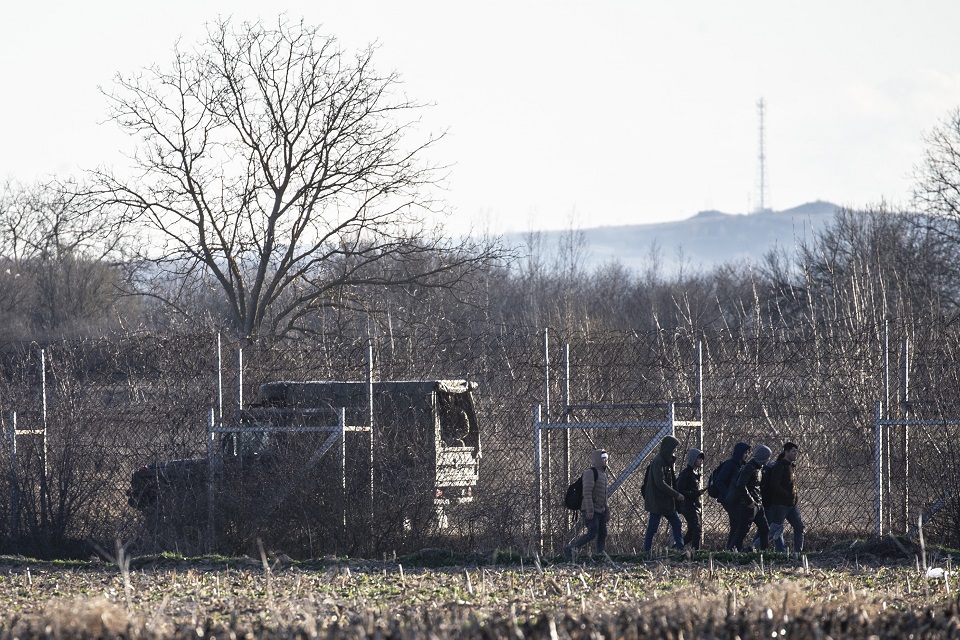
TRT Arabic Map Bypasses All Former Yugoslav Countries
The other route from Turkey heads Northwest, bypassing all the countries of the former Yugoslavia, then passes through Bulgaria, Romania, Hungary, Austria, where the road branches in two directions: one towards Germany and on towards France, writes Dnevnik.
Turkish President Recep Tayyip Erdogan has threatened European Union countries with a new migrant crisis if they do not support his efforts in the Syrian civil war and provide Turkey with additional aid for housing migrants.
EU governments have refused to increase financial aid to Recep Tayyip Erdogan’s Turkey under the terms of their €6 billion migration deal, insisting Europe would not bow to threats from Ankara over opening its border with Greece, according to the Financial Times on March 6, 2020.
Following an emergency meeting in Zagreb on Friday, EU27 foreign ministers held firm on their criticism of Mr Erdogan for using migrants for “political purposes” after a build-up of refugees on the Greek-Turkish border. Mr Erdogan had vowed to open the country’s frontier with Europe over the weekend, sparking the prospect of a new refugee crisis.
Germany has been pushing for more financial support for Mr Erdogan to stave off any repeat of Europe’s 2015 migration crisis. Before the events of this week, member states had discussed the possibility of freeing up about €1 billion from the EU’s current budget for the Turkey facility. But ministers on Friday said they would not ramp up aid in response to pressures on the Greek border.
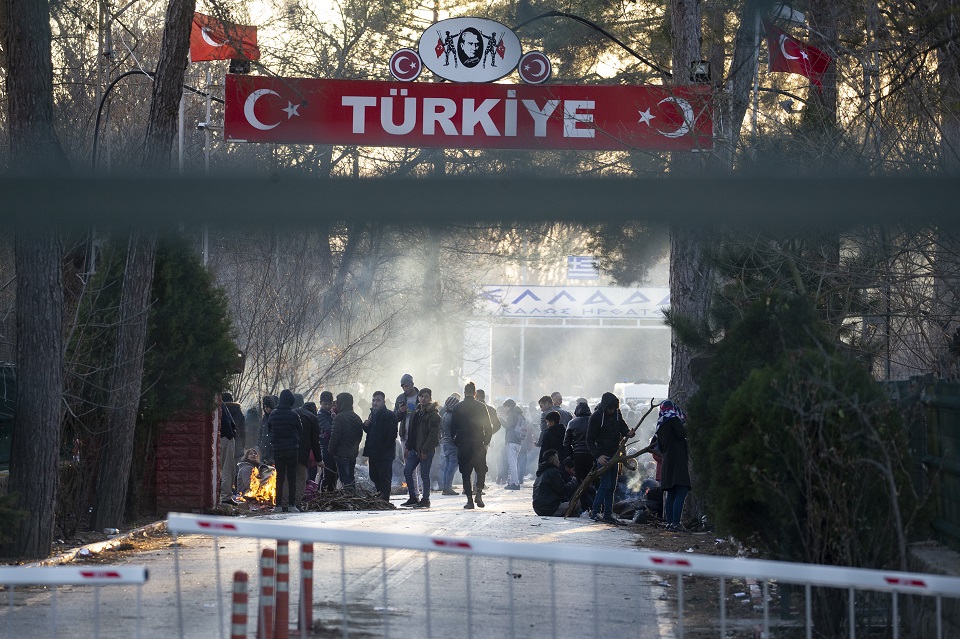
Turkey Demands More EU Aid to House Migrants
Turkey has demanded more financial help to integrate the nearly four million refugees in the country. The EU has been paying out cash to projects to help the integration process since 2016 but key programmes are due to run out of money soon. Ankara has complained that the cash disbursements are too slow and accused the EU of failing to live up to its promises to liberalise visas for Turks as agreed under the deal.
European governments have disagreed over how to engage with Turkey after Mr. Erdogan’s comment prompted thousands of refugees to head to the border with Greece, sparking violent clashes. Athens has pushed for a tough condemnation of Mr. Erdogan’s actions but has met resistance from Berlin and The Hague, which want to keep diplomatic ties open with Ankara.
EU diplomats monitoring the border developments said the flow of migrants towards Greece had stopped in recent days and Mr Erdogan was back in compliance with the terms of the 2016 deal.
Follow this page and our Politics page for Total Croatia News updates on the migrant crisis in Croatia.
Croatia Migrant Crisis: Interior Minister Will Not Send Army to Border
March 2, 2020 - Davor Božinović, the Interior Minister of Croatia, emphasised that there is no need to send the army to the border, because Croatia deals with illegal migrants daily. He added that Croatia’s border protection system maintains communication with colleagues from other countries on every level. And they are working together to pursue a diplomatic solution.
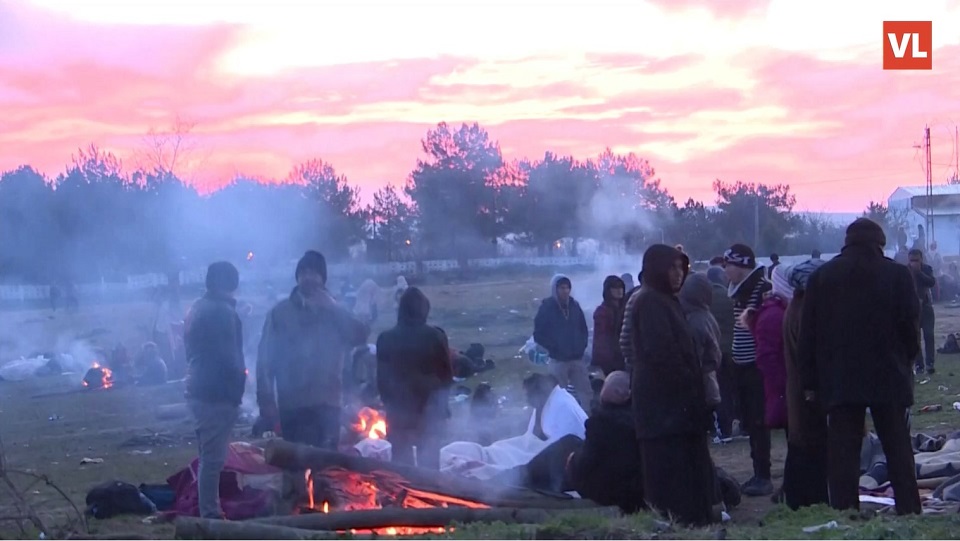
Croatia Eastern Border: No Increase in Illegal Migration
“There has been no reported increase in illegal migration on Croatia's eastern borders. The police are doing their job and the situation is no different than yesterday or the day before. Croatia has been dealing with illegal migration every day for almost three years now. That is why, even with these new circumstances, we can confirm that our border protection system fully operational and doing its job,” Interior Minister Davor Božinović said today. He noted that presently there is no need to send the army to the Croatian border, even though that remains a legal possibility, according to Marina Borovac/Večernji List on March 2, 2020.
“We will see how the situation on the Greek and Bulgarian borders develops, in relation to Turkey’s recent actions (release of migrants from their country). We are in close contact with our colleagues (from other countries) on every level. One direction we are going is certainly the diplomatic route. After all, the President of the European Council, the President of the European Commission and the President of the European Parliament will visit the Greek border tomorrow to see the situation there. At the same time, talks are underway with the Turkish leadership, which is part of the diplomatic role. The aim is to return to the EU-Turkey agreement of 2016,” Božinović added, and is confident that diplomacy would be the goal.
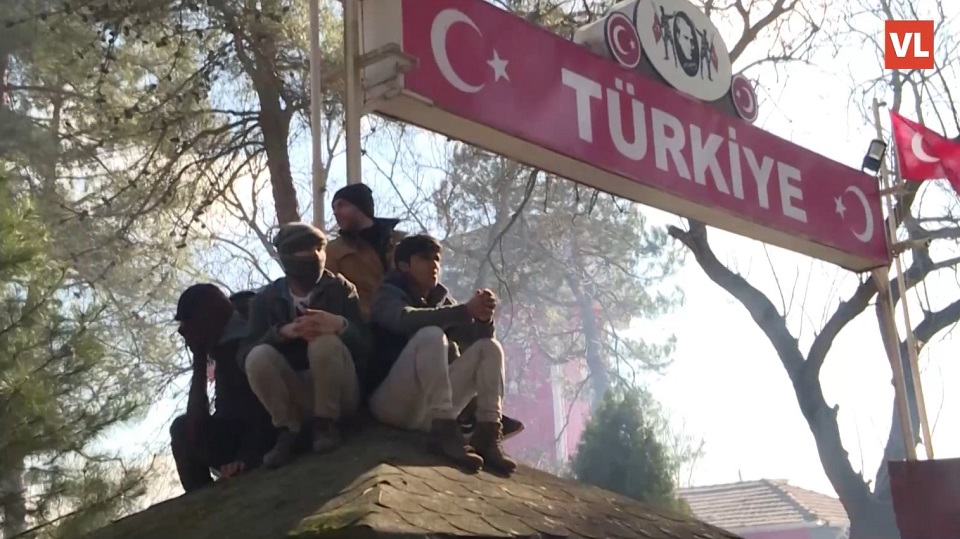
Croatia Will Discuss Border Assistance to Greece, Bulgaria
Božinović announced an upcoming meeting of European interior ministers to discuss what assistance can be sent to Greece and Bulgaria. He says both countries are committed to deterring illegal migration, which is in the wake of the new European Commission's policy regarding the protection of the EU's external borders. Božinović recalled that there was a migrant wave in 2015 because Greece had allowed migrants to pass through their territory.
“This is the only way to prevent the 2015 and 2016 scenario from happening again. Today, not only Greece, but every country has made their objectives very clear regarding the protection of their borders along the so-called Western Balkan route,” the interior minister concluded.
Croatia will emphasize its plight with protecting Europe's borders, but reiterates that the issue of the migrant crisis can only be resolved through (the agreement upon) a common European policy.
Follow our Politics page and this page to keep up-to-date on the migrant crisis along the Western Balkan route in Croatia.
Croatia: Dubrovnik Police Rescue 36 Migrants on Inflatable Dinghy in Aegean
During surveillance of the European Union's maritime border with Turkey, as part of the Frontex Poseidon mission, four naval officers from Dubrovnik, Croatia rescued 36 migrants from an unmanned dinghy in the Aegean Sea on February 10, according to Dubrovnik police who were monitoring the area.
A migrant dinghy was observed in the area from the Evros (Marica) river delta heading toward Makri, Greece. Cries were heard from the small inflatable vessel, and officers immediately came to the rescue.
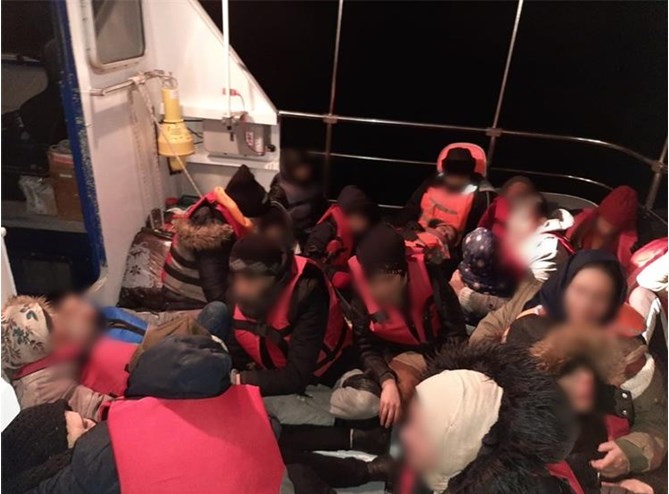
Croatia Police: Migrants on Dinghy Chilled, Dehydrated, Unconscious
"They found 36 foreign nationals on the dinghy, including five children, 11 women and 20 men. All were in poor health: chilled, dehydrated and some were unconscious. The inflatable had run out of fuel and the sea temperature where they were found was only 2 degrees Celsius. It is difficult to say what might have happened to them had they not been rescued,” the Dubrovnik-Neretva Police Department pointed out.
The migrants were transported to a police vessel where officers provided them with water, hot drinks and thermal foil to warm them, after which they were transported to the port of Alexandropolis. They were met there and put under the care of the Emergency Medical Service according to Index on February 14, 2020.
"Out of the 36 migrants, five were hospitalized, while the rest, after receiving medical assistance, were transported to a reception center following further treatment in accordance with national and European legislation," the Dubrovnik police added.
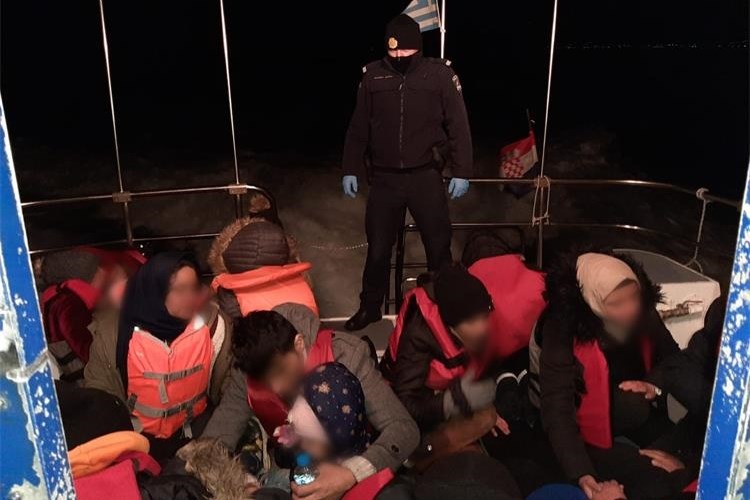
Greece Reports 60,000 Migrant Arrivals in 2019, 4,100 Arrivals in 2020
Following more than 60,000 arrivals last year, more than 4,100 refugees and migrants have reached Greek shores so far in 2020.
Recently, the Croatian parliamentary Committee on Home Affairs and National Security unanimously decided to conduct direct oversight of Croatian police work following complaints about the police treatment of migrants, Committee Chairman Ranko Ostojić (SDP) told the press after the committee meeting on February 6, 2020.
An archive of Total Croatia News coverage on the migrant crisis in Croatia can be accessed here.


